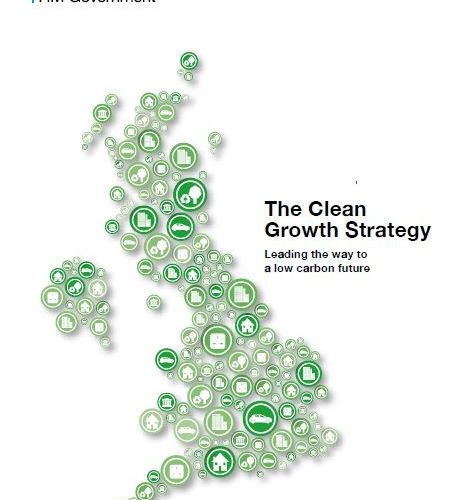Yesterday, the UK Government’s Department for Business, Energy & In...
Yesterday, the UK Government’s Department for Business, Energy & Industrial Strategy released the much anticipated Clean Growth Strategy.
Some of the key policies and proposals in the strategy are listed below. One of the main elements for the public sector is the introduction of a voluntary public sector target of a 30 per cent reduction in carbon emissions by 2020-21.
BEIS have also launched a consultation for FHE called ‘Leading by example: cutting energy bills and carbon emissions in the public and higher education sectors’. The consultation deadline is 7th December and the EAUC are looking to submit a response from members. Please contact us if you would like to input and keep an eye on the events page as we are looking to host a webinar to provide further information for members.
Develop world leading Green Finance capabilities, including by:
Improving Business and Industry Efficiency:
Innovation:
Vehicles - develop one of the best electric vehicle charging networks in the world by:
Read what other organisations are saying about the strategy on Edie.
BEIS are also keen to hear from further and higher education on 'Streamlined energy and carbon reporting'. The consultation deadline is 4th January.
Some of the key policies and proposals in the strategy are listed below. One of the main elements for the public sector is the introduction of a voluntary public sector target of a 30 per cent reduction in carbon emissions by 2020-21.
BEIS have also launched a consultation for FHE called ‘Leading by example: cutting energy bills and carbon emissions in the public and higher education sectors’. The consultation deadline is 7th December and the EAUC are looking to submit a response from members. Please contact us if you would like to input and keep an eye on the events page as we are looking to host a webinar to provide further information for members.
Develop world leading Green Finance capabilities, including by:
- Setting up a Green Finance Taskforce to provide recommendations for delivery of the public and private investment we need to meet our carbon budgets and maximise the UK’s share of the global green finance market
- Working with the British Standards Institution to develop a set of voluntary green and sustainable finance management standards
- Providing up to £20 million to support a new clean technology early stage investment fund
- Working with mortgage lenders to develop green mortgage products that take account of the lower lending risk and enhanced repayment associated with more energy efficient properties
Improving Business and Industry Efficiency:
- Develop a package of measures to support businesses to improve their energy productivity, by at least 20 per cent by 2030
- Establish an Industrial Energy Efficiency scheme to help large companies install measures to cut their energy use and bills
- Publish joint industrial decarbonisation and energy efficiency action plans with seven of the most energy intensive industrial sectors
- Demonstrate international leadership in carbon capture usage and storage (CCUS), by collaborating with our global partners and investing up to £100 million in leading edge CCUS and industrial innovation to drive down costs
- Work in partnership with industry, through a new CCUS Council, to put us on a path to meet our ambition of having the option of deploying CCUS at scale in the UK, and to maximise its industrial opportunity
Innovation:
- Invest around £162 million of public funds in research and innovation in Energy, Resource and Process efficiency, including up to £20 million to encourage switching to lower carbon fuels
- Support innovative energy technologies and processes with £14 million of further investment through the Energy Entrepreneurs Fund
Vehicles - develop one of the best electric vehicle charging networks in the world by:
- Investing an additional £80 million, alongside £15 million from Highways England, to support charging infrastructure deployment
- Taking new powers under the Automated and Electric Vehicles Bill, allowing the Government to set requirements for the provision of charging points
- Accelerate the uptake of low emission taxis and buses by
- Providing £50 million for the Plug-in Taxi programme, which gives taxi drivers up to £7,500 off the purchase price of a new ULEV taxi, alongside £14 million to support 10 local areas to deliver dedicated charge points for taxis
- Providing £100 million for a national programme of support for retrofitting and new low emission buses in England and Wales
- Announce plans for the public sector to lead the way in transitioning to zero emissions vehicles
- Invest £1.2 billion to make cycling and walking the natural choice for shorter journeys
Read what other organisations are saying about the strategy on Edie.
BEIS are also keen to hear from further and higher education on 'Streamlined energy and carbon reporting'. The consultation deadline is 4th January.











